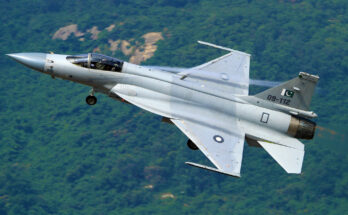A three-way battle to provide around 1,000 very short-range air defense systems (VSHORADS) to the Indian Army appears to have reached an end. Russia’s 9K338 Igla-S shoulder-fired system has been declared the lowest bidder (L-1 in Indian defense parlance) for the roughly $3 billion competitive tender over offers from Sweden’s Saab (featuring the RBS70 NG) and France’s MBDA (the Mistral).
The VSHORADS requirement to replace the Army’s existing stock of 1980s-vintage Russian-built 9K3 Igla-M systems has been in place since being defined in 1999, with the current tender floated by India’s Defense Ministry in 2010 after initially pulling the plug on the project in 2005.
India’s Defense Ministry also halted the process in 2012 while it examined a Raytheon proposal to sell its Stinger system on a government-to-government basis. Those negotiations proved fruitless when little headway was made on technology transfer, an issue vital to India as it seeks to grow and improve its own defense technological base.
By December 2015 it was being reported that India was considering scrapping the existing global tender for man-portable VSHORAD systems in favor of an indigenous project under the Buy and Make (Indian) procurement category.
Such a move would have restricted the competition to domestic vendors. Instead the Ministry of Defense opted to conduct more trials rounds, including a final series in 2017.
In addition, Russia sought to insert its 9K333 Verba system into the ongoing contest as a replacement for its Igla-S around 2016, but to no avail. Including this system while the tender process was already underway would have required a reboot to the contest, therefore the Igla-S remained Russia’s VSHORADS entry.
Despite the lowest bidder determination, a firm contract for the Igla-S remains far from a certainty.
Both Saab and MBDA have voiced strong protests at the selection, alleging that the Russian system did not meet the technical requirements laid out under the Defense Ministry’s Request for Proposal (RFP).
Furthermore, a declaration of contest winner is merely a first step in a winding road to actual contractual signing, with the contract negotiating committee (CNC) now charged with processing the deal before final clearance by the Cabinet Committee on Security (CCS) and, ultimately, India and Russia inking the deal.
Once a firm contract has been signed the initial systems will be supplied by the foreign vendor. The bulk of the roughly 1,000-system order, however, will be built under license in India.
The Indian Defense Ministry’s current long-term requirement calls for 5,175 man-portable VSHORAD systems at a cost of $5.8 billion.
The VSHORAD systems are manned by two-personnel teams and feature a twin launcher system capable of tracking, engaging and firing at incoming threats from airborne platforms. The systems will fill the lowest tier of the Indian Army’s ground-based air-defense network.
Dan Darling is Forecast International’s director of military and defense markets. In this role, Dan oversees a team of analysts tasked with covering everything from budgeting to weapons systems to defense electronics and military aerospace. Additionally, for over 17 years Dan has, at various times, authored the International Military Markets reports for Europe, Eurasia, the Middle East and the Asia-Pacific region.
Dan's work has been cited in Defense News, Real Clear Defense, Asian Military Review, Al Jazeera, and Financial Express, among others, and he has also contributed commentary to The Diplomat, The National Interest and World Politics Review. He has been quoted in Arabian Business, the Financial Times, Flight International, The New York Times, Bloomberg and National Defense Magazine.
In addition, Dan has made guest appearances on the online radio show Midrats and on The Media Line, as well as The Red Line Podcast, plus media appearances on France 24 and World Is One News (WION).




